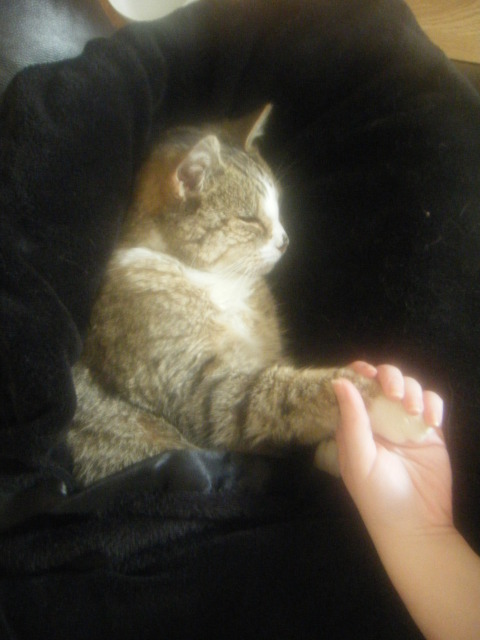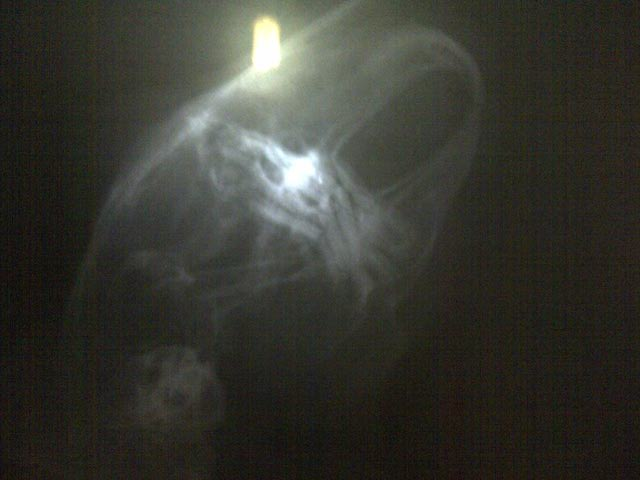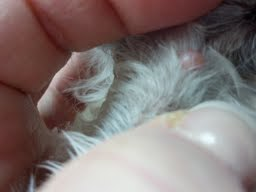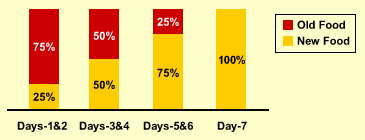QuestionI have a 17 yr old cat. He has steadily lost weight for the last couple of years. So much that you can see his bones. His hind legs give out sometimes when he walks. He's blind and hard of hearing.
I have taken him to the vet and they've done blood work. Dr. has not found anything wrong in the blood work.
Lately, he is disoriented and walks around in circles.
He throws up a lot and sometimes pink.
I know he is coming to the end of his life. I just would like to know if he is suffering or is in any pain right now. If he is, I would want to put him down.
Your guidance would be greatly appreciated.
Thanks in advance,
Margie
AnswerYou're right Margie, he is at the end of his sweet life. Oh this is just so hard!
Honestly I shed tears for every post I get like this.
Since the vet didn't find anything wrong in his blood work, such as kidney failure (very common) or liver failure, I would have to say that he most LIKELY is not suffering from pain. So if he isn't being poisoned by kidney failure, and isn't dehydrated at all, then no, he probably isn't in any pain.
However, it's his quality of life that becomes an issue at that point. So the questions you need to ask yourself are these:
This is from a Quality of Life Chart I got from a Hospice page:
"HUNGER - Is the pet eating enough? If the pet is refusing food then it's telling you that it is time. Force feeding will not change this.
HYDRATION - Is the patient dehydrated? For patients not drinking enough, use subcutaneous fluids once or twice daily to supplement fluid intake.
HYGIENE - The patient should be brushed and cleaned, particularly after elmination. Avoid pressure scores and keep all wounds clean.
HAPPINESS - Does the pet express joy and interest? Is the pet responsive to things around him or her (family, toys, etc.)? Is the pet depressed, lonely, anxious, bored or afraid? Can the pet's bed be close to the family activities and not be isolated?
MOBILITY - Can the patient get up without assistance? Does the pet need human or mechanical help (e.g. a cart)? Does the pet feel like going for a walk? Is the pet having seizures or stumbling? (Some caregivers feel euthanasia is preferable to amputation, yet an animal who has limited mobility but is still alert and responsive can have a good quality of life as long as caregivers are committed to helping the pet.)
MORE BAD DAYS THAN GOOD - When bad days outnumber good days, quality of life might be compromised. When a healthy human-animal bond is no longer possible, the caregiver must be made aware the end is near. The decision needs to be made if the pet is suffering. If death comes peacefully and painlessly, that is okay."
These are tough questions but they really can make things crystal clear when we are so fuzzy headed from our emotions over this.
I had a cat that lived to be 19 yrs old. One month after he turned 19 he went into kidney failure. He was fine for 4 weeks then one night I came home from work and found that his tear ducts had stopped working. I knew how painful that was, so I had him put down the next morning.
The point is that sometimes it's not so clear to us so we need an objective list to look at. Once I knew Floyd's quality of life was gone I let him go.
If your kitty is still sitting in your lap, purring, and he eats every day, then it's not time. If he stops eating for even one day- then he is telling you it's time.
Really that's the best gauge of all. They will tell you when they are ready. Note the last line in the chart. If death comes peacefully and painlessly, that is okay. It's okay for them to die in their sleep or on their own, as long as they are not suffering before hand.
I hope this helps and my heart goes out to you both.

 My old cat whos not eating well after dental surgery
Question
timmy since his surger
Hi, Im really worried a
My old cat whos not eating well after dental surgery
Question
timmy since his surger
Hi, Im really worried a
 inquiry..my bunny keeps drolling n grinding his teeth
Question
dental xray xray
Dear Jana,
Hai..
inquiry..my bunny keeps drolling n grinding his teeth
Question
dental xray xray
Dear Jana,
Hai..
 bulldog puppy with mange ; itchy bulldog ;
QuestionHi I hope you can help my bulldog with mange. &
bulldog puppy with mange ; itchy bulldog ;
QuestionHi I hope you can help my bulldog with mange. &
 Small growth my dogs face
Question
growth photo 2 growth photo 3
Hi.
Small growth my dogs face
Question
growth photo 2 growth photo 3
Hi.
 5 year old Chihuahua suddently farting a lot
QuestionQUESTION: Hi,
My question is about my 5-year o
5 year old Chihuahua suddently farting a lot
QuestionQUESTION: Hi,
My question is about my 5-year o